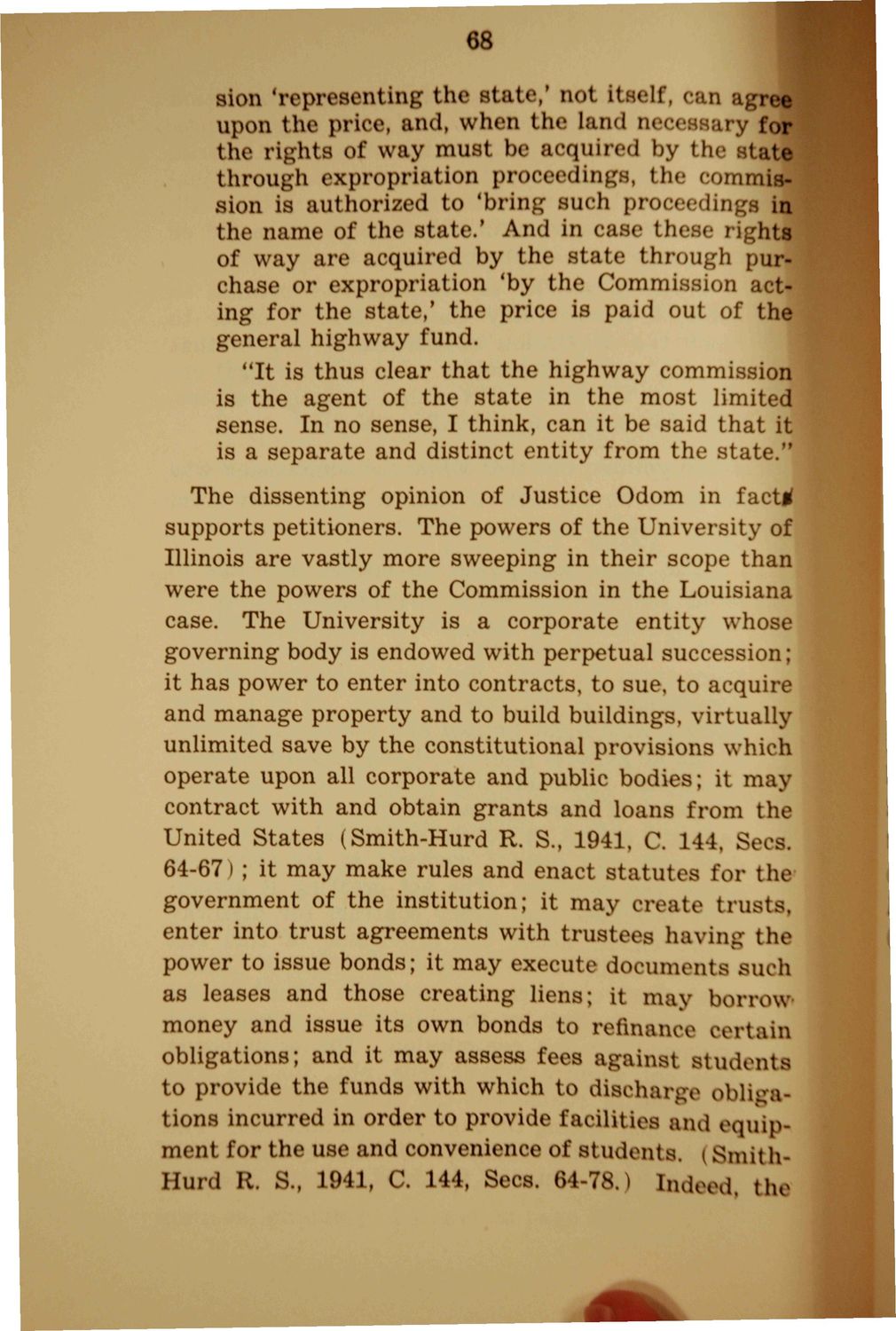| |
| |
Caption: Booklet - UI Charter of Freedom (1942)
This is a reduced-resolution page image for fast online browsing.

EXTRACTED TEXT FROM PAGE:
68 sion 'representing the state,' not it '-If, can agr< upon the price, and, when the land necessary for the rights of way must be acqum l by the state through expropriation proceedings, th< commia sion is authorized to 'bring such proa 'lings in the name of the state.' And in case these rights of way are acquired by the state through purchase or expropriation 'by the Commission acting for the stale,' the price is paid out of the general highway fund. "It is thus clear that the highway commission is the agent of the state in the most limited sense. In no sense, I think, can it be said that it is a separate and distinct entity from the state." The dissenting opinion of Justice Odom in facts supports petitioners. The powers of the University of Illinois are vastly more sweeping in their scope than were the powers of the Commission in the Louisiana case. The University is a corporate entity whose governing body is endowed with perpetual succession; it has power to enter into contracts, to sue, to acquire and manage property and to build buildings, virtualh unlimited save by the constitutional provisions which operate upon all corporate and public bodies; it may contract with and obtain grants and loans from the United States (Smith-Hurd R. S., 1941. C. 144. Sees. 64-67) ; it may make rules and enact statutes for tlu government of the institution; it may create trusts. r enter into trust agreements with trustees havin» tht power to issue bonds; it may execute documents such as leases and those creating liens; it may borrow money and issue its own bonds to refinance < rtain obligations; and it may assess fees against students to provide the funds with which to discharge obligations incurred in order to provide facilities and equipment for the use and convenience of students. (SmithHurd R. S., 1941, C. 144, Sees. 64-78.) Indeed, the
| |